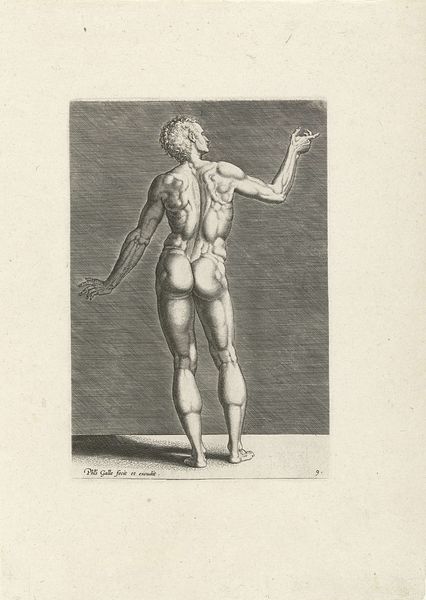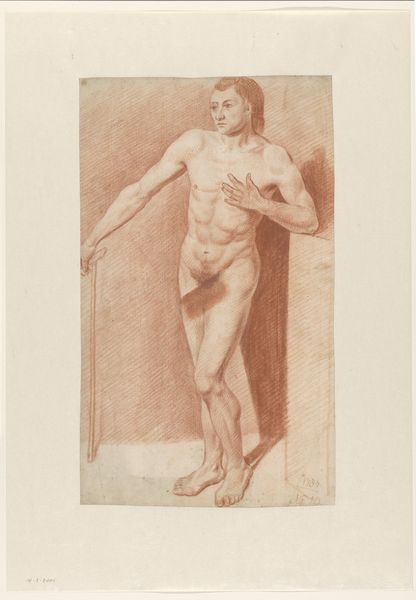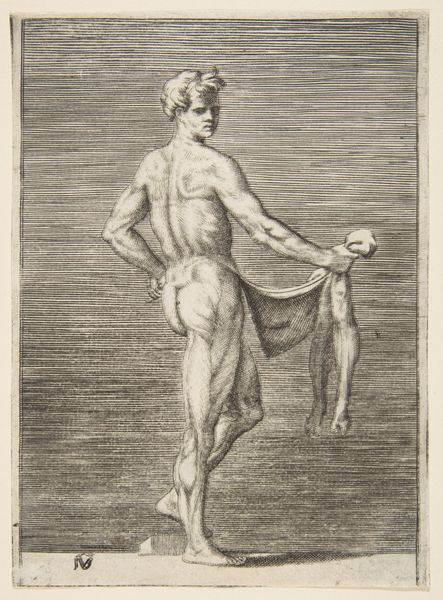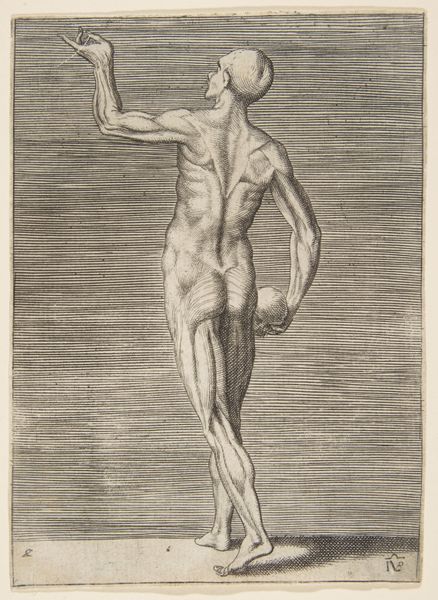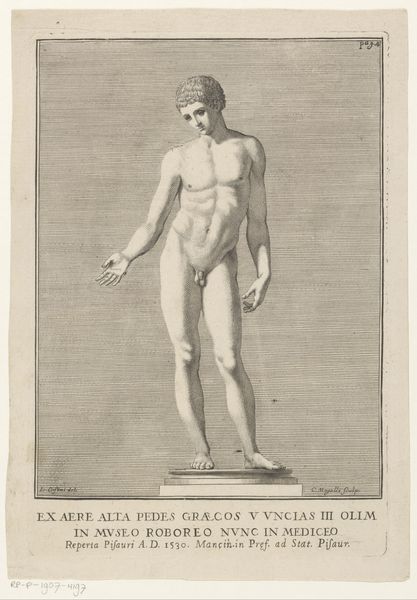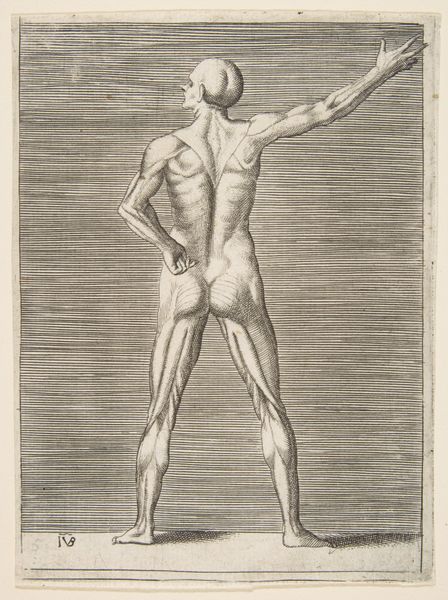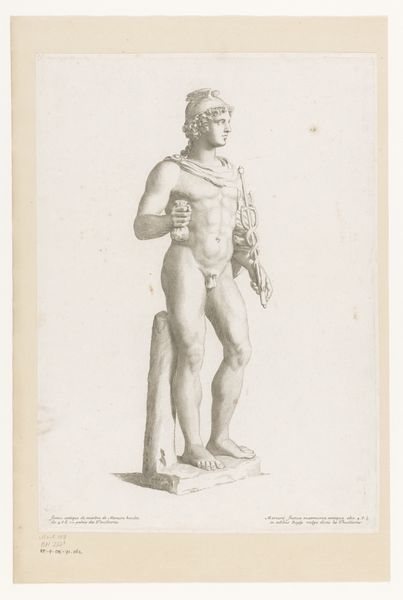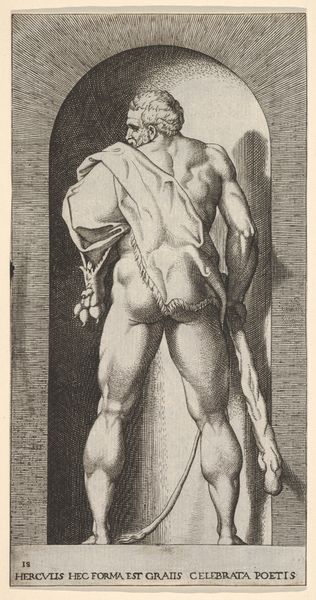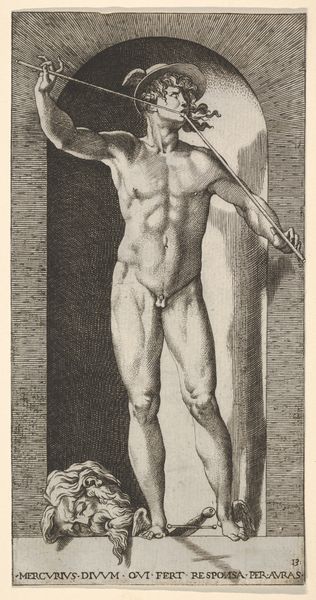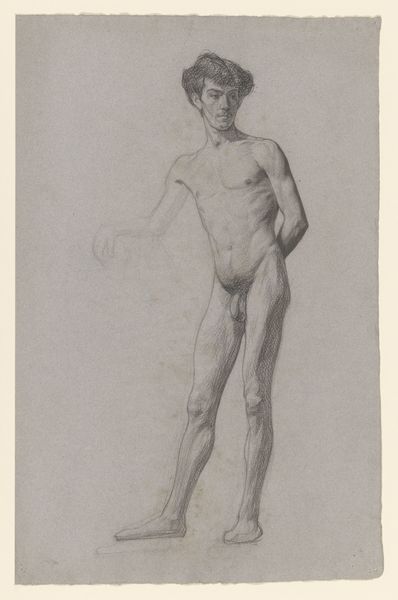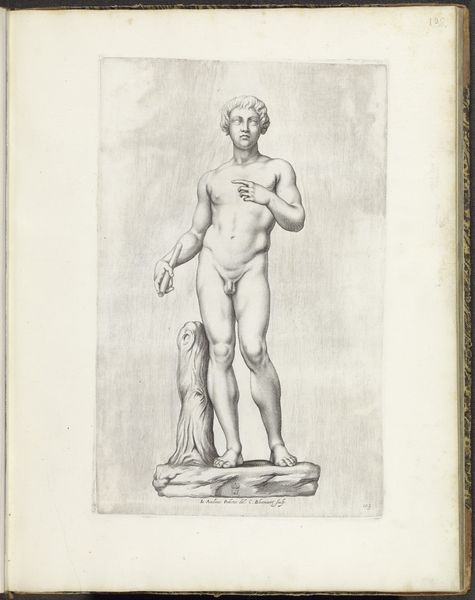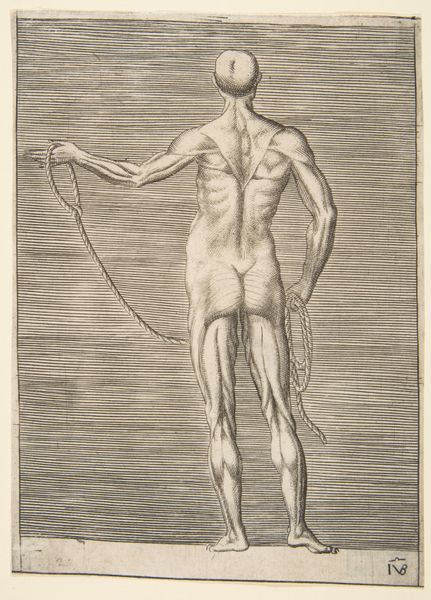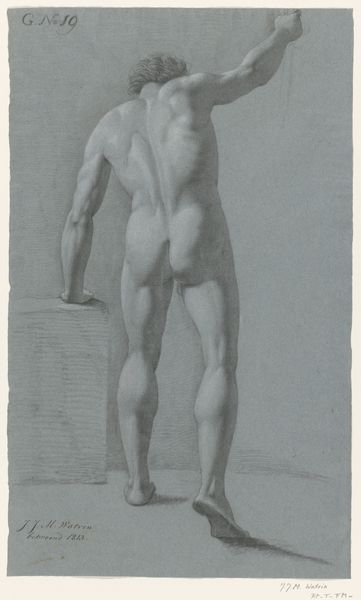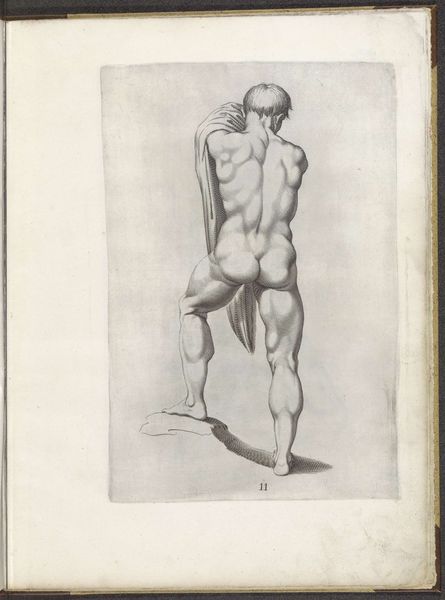
#
pencil drawn
#
light pencil work
#
pencil sketch
#
old engraving style
#
personal sketchbook
#
pen-ink sketch
#
ink colored
#
sketchbook drawing
#
pencil work
#
sketchbook art
Dimensions: height 235 mm, width 160 mm
Copyright: Rijks Museum: Open Domain
Philips Galle created this print, "Nude man, walking to the right," sometime in the late 16th century. Galle, living in the Netherlands, was part of a cultural milieu deeply influenced by the Renaissance and its fascination with classical antiquity. The male nude, a staple of classical art, here takes on a life of its own. We see not just a body, but a study of musculature and form, reflecting the era’s interest in anatomy and the human figure as an ideal. The man's posture, caught mid-stride, suggests a sense of purpose or direction, yet he remains isolated on the page. In this period, the male nude often symbolized power, beauty, and virtue, yet it also served as a canvas for exploring societal norms around masculinity and the male body. How might the contemporary viewer's perception of this image differ, given our evolving understanding of gender and body image?
Comments
rijksmuseum over 2 years ago
⋮
This engraving is from a series of thirteen prints entitled ‘Foundations of drawing’. They aided and inspired artists in making figure compositions and understanding human anatomy.
Join the conversation
Join millions of artists and users on Artera today and experience the ultimate creative platform.
